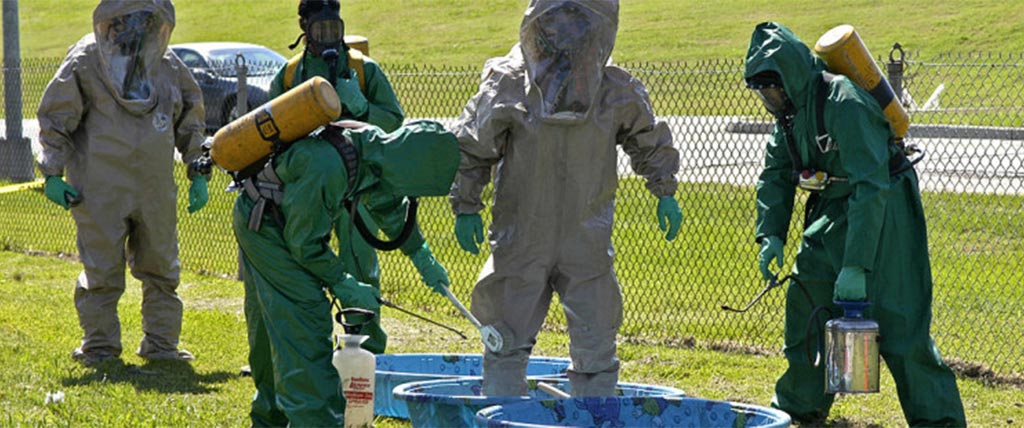
Hazardous Materials Reporting (Tier II)

In 1986, Congress passed the Emergency Planning and Community Right to Know Act, commonly known as EPCRA. This bill requires each governor to appoint a State Emergency Response Commission (SERC) which then divides the state into planning districts responsible for appointing Local Emergency Planning Committees (LEPCs).
Facilities covered by EPCRA are required to submit an emergency and hazardous chemical inventory form (Tier 2 Submit) to EACH of the following agencies: the LEPC (on Cape Cod, this is the BCREPC), the SERC and their local fire department by March 1st of each year.
The Basics of a Tier 2 Report
This hazardous chemical inventory report (Tier 2) is done on either a downloaded reporting form from the Environmental Protection Agency’s (EPA) website or from a web-based reporting software entitled “Tier 2 Manager”. Tier 2 hazardous chemical inventory report forms require basic facility identification information, employee contact information for both emergencies and non-emergencies, and information about chemicals stored, added/removed, delivered to, or used at the facility.
On behalf of the Barnstable County Regional Emergency Planning Committee (BCREPC), which includes Cape Cod and Nantucket, Amy L. Alati, Emergency Preparedness Project Assistant, is available to assist all facility submitters with their annual reporting obligations. The process of filing this federally mandated/enforced chemical report typically begins January 1st of each calendar year, with a non-negotiable deadline of March 1st.
Who Should File a Tier 2 Report by March 1st?
Private/public/government facilities must report their inventories of hazardous and toxic chemicals if they meet established thresholds and requirements under the sections of the EPCRA law. If a facility is found to have hazardous chemicals at a threshold of 10,000 pounds or greater, or Extremely Hazardous Substances (EHS) at smaller established thresholds, these need to be reported annually under EPCRA. This will not be a one time process; but an annual obligation by the facility to provide chemical storage, quantity, and transportation data, as well as current emergency contact information.
Why Should My Facility File a Tier 2?
Chemical information from the Tier 2 reports provides essential data to our local first responders and enables them to pre-plan for hazardous material incidences and disasters in our communities on Cape Cod and Nantucket. Your Tier 2 report also increases the public’s knowledge and legal right to information on chemicals at individual facilities, their uses, and releases into the environment. In other words, the Tier 2 reporting process protects you from a potential liability.
Chemical inventory assessment, reporting, contingency planning and spill response are mandatory under EPCRA and extremely important to all businesses and municipal facilities. Facilities must take the correct steps to understand if they must file a Tier 2 report for their facility by March 1st. Compliance with EPCRA can help facilities avoid potential penalties which can result in civil and administrative fines ranging upwards to $10,000 – $75,000 per violation, or per day per violation. If a facility fails to comply with the reporting requirements, the EPA enforcement office views non-reporting as non-compliance!
Who at the BC Regional Emergency Planning Committee can HELP me with Filing a Tier 2 Hazardous Chemical Inventory Report?
Amy L. Alati, Hazardous Materials Specialist/Laboratory Safety Officer, is available year round, to provide information and assistance to any facilities with questions and information/updates on the the Tier 2 reporting process. Compliance assistance is FREE of charge and consists of everything from a simple phone consultation, to office appointments to complete Tier 2 filings, onsite facility assessments to determine Tier 2 reporting eligibility, Tier 2 computer workshops, Tier 2 information workshops, and hazardous material safety trainings that incorporate data and safety information relative to the Tier 2 process. These services provide data, educational resources, and collaborations that protect this region’s first responders, preserve local businesses, improve chemical and hazardous waste storage, protect worker health and safety, lower business and facility liabilities, and educate facility staff on spill contingency planning in-house in order to protect public health, property values, and the environment.
Amy L. Alati has 30 years of labor/industry, administrative, regulatory compliance, inspection, and training experience in hazardous materials. She assists approximately 445 Tier 2 facilities on Cape Cod and Nantucket each year with their hazardous chemical reporting and year-round regulatory compliance issues. She recently completed her second Masters of Science degree in Occupational Health and Safety and serves as the Safety Officer for the Barnstable County Water Quality Laboratory.



